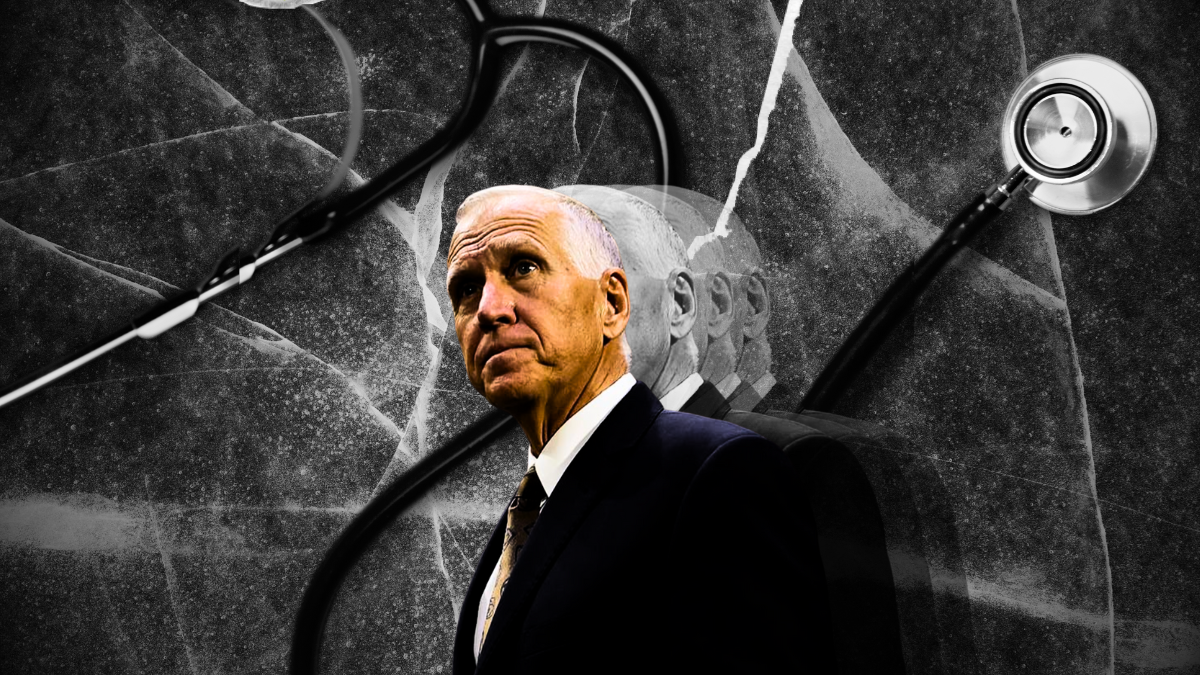A coalition of progressive advocacy groups and local health care providers recently gathered in Raleigh to urge U.S. Sen. Thom Tillis to oppose a sweeping federal proposal that would cut $880 billion from Medicaid, according to NC Newsline. The plan, developed by congressional Republicans and dubbed President Donald Trump’s “big, beautiful bill,” seeks to offset $4.5 trillion in tax breaks by gutting health care programs that millions of Americans — and over 3 million North Carolinians — depend on.
The legislation, released late on Sunday, May 11, spans hundreds of pages and represents the most significant health care fight since the GOP’s failed attempt to repeal the Affordable Care Act (ACA) in 2017. Republicans say the bill would eliminate “waste, fraud, and abuse” through new work and eligibility requirements. Democrats — and health experts — warn that millions will lose coverage, hospitals will close, and states like North Carolina will feel the brunt of the cuts.
A preliminary analysis from the nonpartisan Congressional Budget Office (CBO) projects that the plan would result in 8.6 million fewer people with health coverage over the next decade. The Energy and Commerce Committee, which was tasked with identifying $880 billion in savings, hit its target largely through deep cuts to Medicaid and rollbacks of clean energy investments. Of the projected $912 billion in total deficit reduction, $715 billion comes from health care provisions alone.
North Carolina Advocates: Cuts Would Hit Rural Communities Hardest
At the press conference — organized by the Coalition Against Right-Wing Extremism (CARE) — speakers underscored what the proposed changes could mean for North Carolina, where about 650,000 residents gained coverage through Medicaid expansion passed by the state legislature in 2023.
Dr. Beverly Edwards, a pediatrician from Ahoskie in northeastern North Carolina, described Medicaid as a lifeline for families in rural areas.
“In rural areas, access to health care is already hard to come by,” she said. “There are fewer jobs that offer employee-sponsored health care than in some other areas. That means if people lose their health care through Medicaid, they don’t have any alternatives.”
Medicaid helps keep rural hospitals open and ensures families can access essential services like prenatal care and surgeries. If Congress moves forward with this proposal, Edwards said, the consequences would ripple across the region.
Work Requirements Could Strip Coverage from Thousands
One of the plan’s most controversial provisions is the introduction of new “community engagement requirements” — at least 80 hours per month of work, education, or volunteer service — for able-bodied adults without dependents. Enrollees would also need to verify their eligibility twice a year instead of once. Critics argue this would create bureaucratic hurdles that could cause coverage disruptions, particularly in underserved or low-access areas.
Research from the Robert Wood Johnson Foundation and the Urban Institute found that these kinds of requirements could cause as much as 30% of North Carolina’s newly eligible Medicaid population to lose coverage.
Other proposed changes include:
- Requiring Medicaid recipients earning above 100% of the federal poverty level (~$32,000/year for a family of four) to pay up to $35 per visit for certain non-emergency services.
- Disqualifying applicants who own homes valued over $1 million.
- Cutting federal Medicaid reimbursements by 10% to states like North Carolina that allow undocumented immigrants to access limited Medicaid services.
- Requiring all ACA enrollees to prove lawful presence in the U.S.
The bill would also end the 5% federal Medicaid funding boost provided during the COVID-19 pandemic and freeze the use of provider taxes — a strategy some states use to increase federal funding — which critics say will shift more financial burden to the states.
Calls for Sen. Tillis to Act
Alexandra Sirota, executive director of the North Carolina Budget and Tax Center, called on Sen. Tillis to use his influence to stop the cuts.
“North Carolinians want an economy that works for us all,” Sirota said. “Our elected leaders, through their policy choices, have the power to do just that.”
Even some conservatives have expressed concern. Sen. Josh Hawley (R-Mo.) warned in an op-ed that trading health care cuts for tax breaks is “morally wrong and politically suicidal.”
Still, House Republicans are moving swiftly. Eleven House committees are holding public hearings this week, with Speaker Mike Johnson pushing to pass the legislation by Memorial Day.
Despite internal GOP divisions and Trump’s own stated opposition to cutting Medicaid, advocates across the country — and in North Carolina — are bracing for what could become the biggest rollback of health care access in over a decade.





